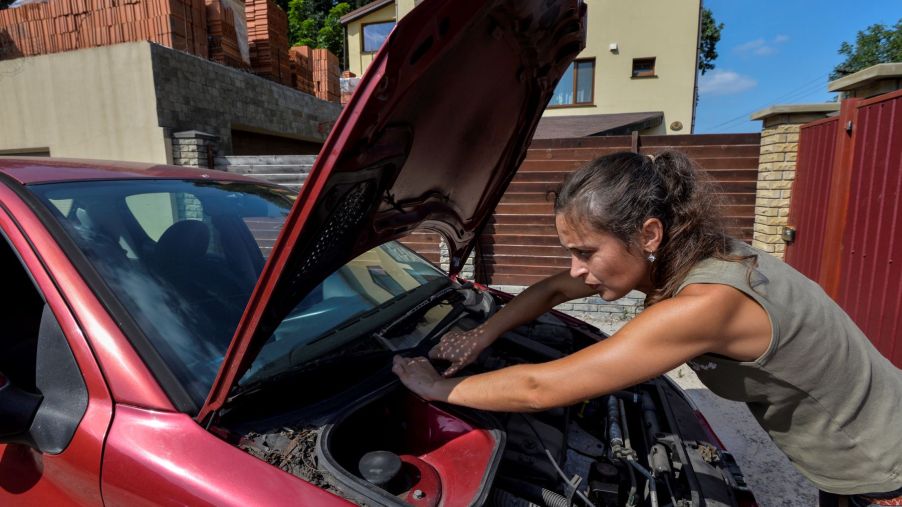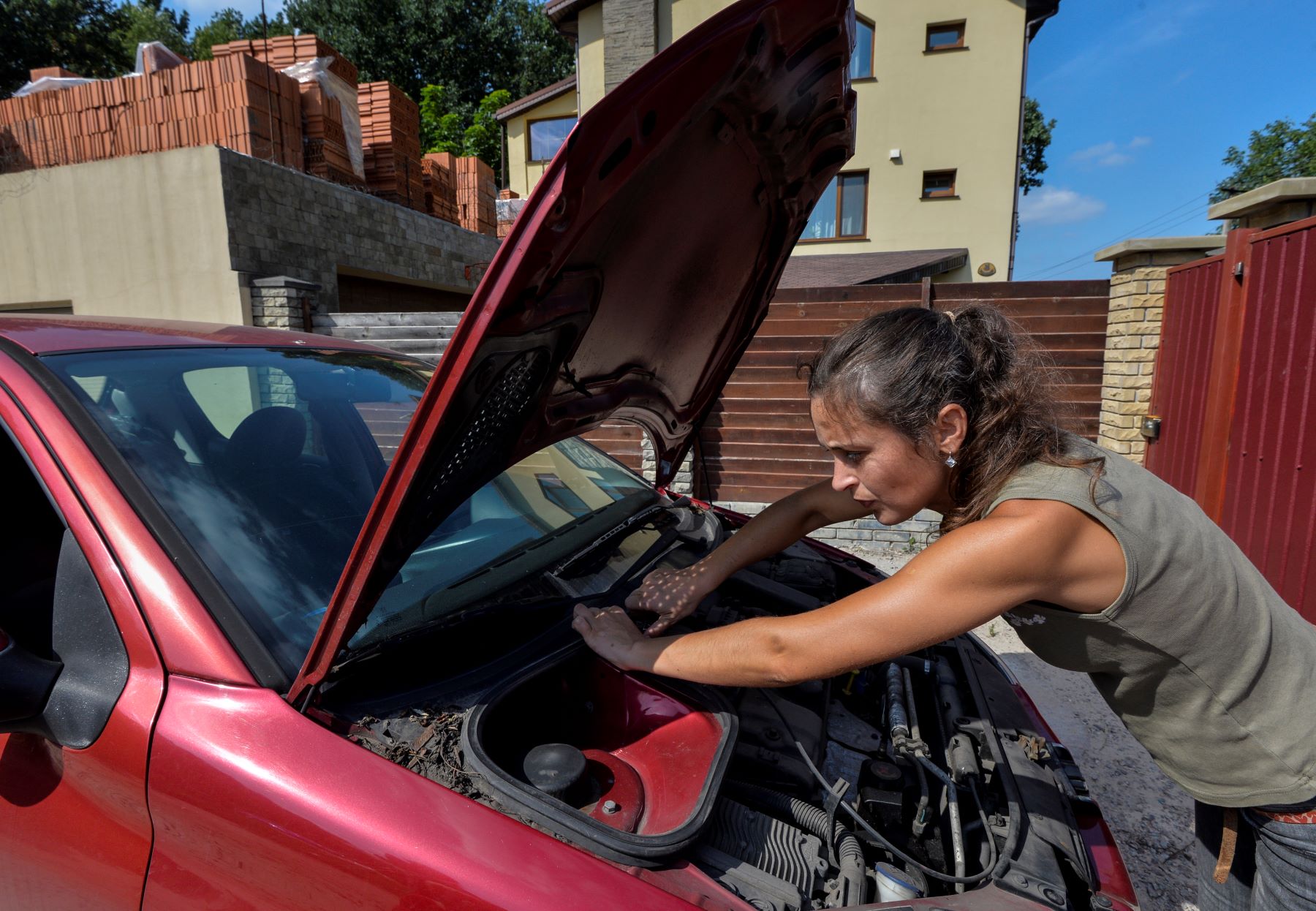
These 8 Bad Car Maintenance Habits Are a Mechanic’s Nightmare
Car maintenance can be a tedious exercise. It’s not always easy to find the time for oil changes or getting tires rotated and aligned. However, if something potentially terminal happens with a vehicle, there can be warning signs ahead of time that could be fixed with regular car maintenance. To help prevent minor problems from becoming big, Family Handyman even put together a list of some of the worst habits your mechanic wants you to stop doing.
1. Ignoring your car’s check engine light

The dreaded check engine light is one of the many lights that can pop up on your car’s dashboard. While it can cause panic, a survey shows that nearly two-thirds of drivers ignore their check engine light. A full quarter of respondents said they never even got the problem looked at.
However, the light can indicate maintenance problems with almost anything, so Family Handyman recommends you get it checked as soon as possible. It may be scary, but waiting until severe damage can escalate repair costs from hundreds to thousands of dollars. The good news is that many repair shops will tell you why the light is on for free.
CarMD’s Vehicle Health Index tracked the most common check engine light-related repairs of 2020. The top repair was a new catalytic converter with an average cost of $1,383. The remaining maintenance included replacing oxygen sensors ($243), ignition coils and spark plugs ($389), mass airflow sensors ($336), and tightening or replacing a fuel cap ($25).
As far as brands go, CarMD reports in 2020 that Mitsubishi is the least likely to have a check engine light come on, followed by Mercedes and Volkswagen. Meanwhile, Kia cars had the lowest average repair cost at $322.
2. Waiting too long for routine maintenance
Similar to check engine lights, routine maintenance on your car can go a long way to keeping it functioning correctly on the road. In fact, routine car maintenance can benefit your vehicle in multiple ways.
Family Handyman uses engine coolant as an example. Yes, engine coolant helps your engine from overheating, but it also prevents internal corrosion. Skipping routine coolant changes can lead to problems down the line, including water pump, heater core, and/or radiator failure.
3. Ignoring unusual noises in your car
If your car is in good condition, it will sound like it. As Family Handyman says, that means no squealing, screeching, grinding, rumbling, clicking, or clunking. Each sound could imply something is wrong.
Squealing when you start up, whining while turning the wheel, and groaning sounds could indicate a failing power steering pump. Weird car noises such as clicking while turning could be a worn-down CV axle. Grinding or squeaking under braking signifies that your brakes may need attention. A high-pitched squeal could be the sign of a faulty drive belt which could lead to engine failure.
4. Ignoring bad or unusual smells
Like ignoring sounds, ignoring smells could lead to high car repair and maintenance bills. Each one has a different potential culprit. Family Handyman points to low fluid levels if you can tell there’s an oily burning smell. Often that could mean a leak and cause damage to the engine, power steering, or transmission.
A sweet smell is a sign of low coolant or a problem in your heater core. Burnt paper is a bad sign, too; your clutch may be in danger of failing. If your car smells awful after turning on the air conditioning, that may be a sign of mildew growing in the A/C system. Ignoring any of these smells could lead to serious system failures.
5. Buying a used car without a professional maintenance inspection
Buying used cars from a private seller online or a local dealership can be overwhelming. It’s even worse with fewer new cars on the market due to labor and semiconductor chip shortages. However, checking the dipstick or taking a test drive may not be good enough to find potential hidden problems.
Getting the vehicle checked by a professional may cost hundreds of dollars but could pay dividends. Family Handyman recommends agreeing with the seller on a price contingent on a clean bill of health from an inspection.
That used car inspection can check for any recently erased trouble codes, physical problems with wear on the belt, suspension, or tires, and input from computer data during a test drive. You can get a full report with the results and factor that into finalizing your sale.
6. Shifting to or from reverse when your car is moving
It’s easy to do. You’re in a parking lot, you’ve reversed out of your spot, and are in a hurry to get going. You put your car in drive from reverse without coming to a complete stop. However, that can damage your vehicle over time and lead to high maintenance costs.
In an automatic transmission car, Family Handyman says there’s a Transmission Selector Switch that gives the computer a signal. The ECM then sends out more signals to sensors to engage drive. In a manual car, that can lead to damaged shift cables or misadjusted linkages. That can ultimately keep the reverse gear from locking when shifting.
7. Driving on worn-out tires
It makes sense that people drive on worn tires. They can be a considerable cost and take time to select and get fitted onto your car. However, driving on worn tires has maintenance and safety implications at high and low speeds. When you’re driving fast, Family Handyman notes that stopping distances are longer; a difference in stopping from 70 mph on tires with 2/32-inch tread can take 100 more feet than tires with 4/32-inch tread. At low speeds, you can easily slide into a curb, and if it’s raining, you’re more likely to skid as well.
If you’re unsure if your tires are worn, the penny test is an easy way to find out.
8. Withholding information
If you’re going to a mechanic to get your car fixed or checked out for needed maintenance, withholding information can be harmful. Simply put, they need all the information they can get to understand what could be wrong under the hood or in a system. Family Handyman recommends jotting down any information related to signs of trouble and providing that to your mechanic.


